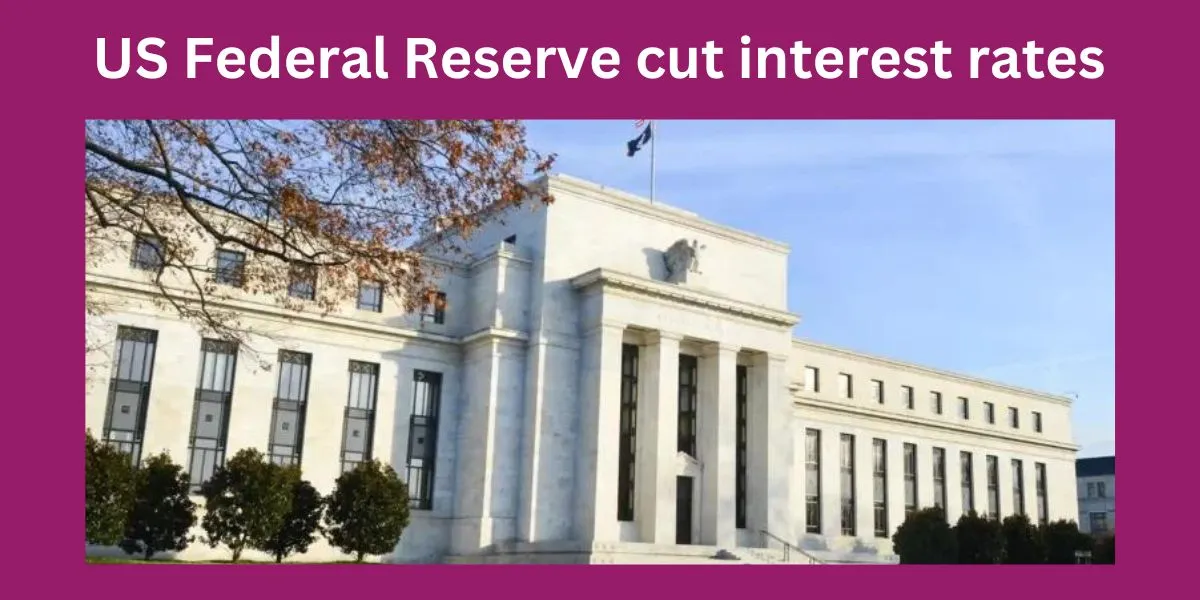Are you wondering what’s happening with interest rates? The world of finance never stands still, and right now, all eyes are on the US Federal Reserve and the Bank of England. These two financial giants are expected to make big moves when it comes to interest rates. While the Federal Reserve (Fed) is likely to cut rates, the Bank of England (BoE) appears set to hold them steady. But what does this mean for you, your savings, and the global economy?
In this article, we’ll break it all down in simple, bite-sized pieces. We’ll dive into why these two central banks are making different decisions and how it affects everything from inflation to your mortgage. Ready to get a clearer picture? Let’s jump in!
Understanding Interest Rates: A Quick Refresher
What Are Interest Rates?
Before we dig into the decisions of the Federal Reserve and the Bank of England, it’s important to know what interest rates are. Interest rates are simply the cost of borrowing money. When you take out a loan, you pay back the original amount plus a little extra—this “little extra” is the interest.
Why Do Central Banks Control Interest Rates?
Central banks like the Fed and the BoE use interest rates to manage the economy. When the economy is growing too fast and inflation rises, central banks may increase interest rates to slow things down. When growth is sluggish, they might lower rates to stimulate spending and investment.
Now that we’ve got that covered, let’s talk about what the Fed and BoE are up to.
The US Federal Reserve: Why Is a Rate Cut Expected?
Economic Slowdown in the US
The US economy has been showing signs of slowing down. Growth in sectors like housing, manufacturing, and retail has cooled off, and inflation is finally coming under control. For these reasons, the Federal Reserve is expected to cut interest rates.
Inflation Is Finally Under Control
In recent years, inflation has been a hot topic in the US. Prices were rising, and the Fed was raising interest rates to keep inflation in check. Now, with inflation showing signs of easing, the Fed has the flexibility to consider cutting rates without worrying about fueling further price increases.
How a Rate Cut Could Benefit the Economy
When the Fed lowers interest rates, borrowing becomes cheaper. This encourages businesses to invest and consumers to spend, stimulating economic growth. Lower rates also make it more attractive for people to buy homes or take out loans for major purchases. That’s the upside. But what’s the potential downside? We’ll get to that shortly.
The Bank of England: Why Is It Holding Steady?
Different Economy, Different Needs
Over in the UK, the economy is facing a different set of challenges. Inflation is still an issue, and the BoE is concerned that lowering rates could make the problem worse. Unlike the US, where inflation has cooled, the UK is still battling rising prices on everyday goods like food and energy.
A Balancing Act Between Growth and Inflation
The Bank of England has a tough job right now. It wants to keep the economy growing, but it also doesn’t want inflation to spiral out of control. By holding interest rates steady, the BoE is trying to walk a fine line—stimulating the economy just enough to avoid a recession but not so much that it fuels more inflation.
What Holding Rates Means for the UK Economy
Keeping rates where they are means that borrowing costs in the UK will remain relatively high. This could slow down consumer spending and business investment. On the flip side, it might help control inflation and prevent prices from rising even further.
How Does This Impact You?
If You Live in the US…
If you’re an American, a potential rate cut from the Federal Reserve could make borrowing cheaper for you. Thinking about buying a house? You might find lower mortgage rates. Got student loans or credit card debt? A rate cut could ease the interest you’re paying.
But beware—lower rates can also encourage excessive borrowing, and if the economy doesn’t pick up, that could lead to problems down the road.
If You Live in the UK…
For those in the UK, the Bank of England’s decision to hold interest rates steady means that borrowing will remain expensive. If you’re hoping for a break on your mortgage or other loans, you might be out of luck. However, keeping rates high could help bring down inflation, which could make your groceries and energy bills more affordable in the long run.
H1: The Global Impact: How Do These Decisions Affect the World?
Global Trade and Investment
The decisions made by the Fed and the BoE don’t just affect their own countries—they have ripple effects across the world. When the US cuts rates, it can lead to a weaker US dollar, making American exports cheaper and more attractive to other countries. This can boost global trade but may hurt nations that rely on stronger currencies for their own exports.
In the UK, holding rates steady could have the opposite effect. The British pound might stay stronger, making UK goods more expensive for other countries to buy.
Impact on Emerging Markets
Emerging markets—countries like Brazil, India, or South Africa—are often sensitive to changes in interest rates in larger economies like the US and UK. When the Fed cuts rates, investors might look for higher returns in these emerging markets, boosting their economies. However, if inflation remains high globally, these markets could face challenges of their own.
Pros and Cons of These Interest Rate Decisions
The Pros of a US Rate Cut
- Stimulates economic growth: Cheaper borrowing can lead to more spending and investment.
- Boosts housing and retail markets: Lower mortgage rates make homes more affordable.
- Eases debt burdens: Lower interest on loans can help consumers manage debt more easily.
The Cons of a US Rate Cut
- Potential for excessive borrowing: Cheap loans can lead to over-leveraging.
- Limited impact if confidence is low: If consumers are worried about the economy, they might not borrow or spend, even with lower rates.
The Pros of the Bank of England Holding Rates
- Keeps inflation in check: High interest rates can help control rising prices.
- Prevents overheating: It stops the economy from growing too quickly and causing more inflation.
The Cons of the Bank of England Holding Rates
- High borrowing costs: Consumers and businesses face higher costs when borrowing money.
- Slower economic growth: Less spending could lead to a slowdown in the economy.
Conclusion
So, there you have it—two central banks, two different strategies. While the Federal Reserve is expected to cut rates to spur growth, the Bank of England is playing it safe and holding rates steady to keep inflation under control. Both decisions have pros and cons, and they’ll affect people in the US and UK differently. Whether you’re thinking about borrowing or just trying to keep up with rising costs, these interest rate changes are something to keep an eye on.
FAQs
1. What happens if the Federal Reserve cuts interest rates?
A rate cut typically makes borrowing cheaper, encouraging spending and investment, but it can also lead to excessive borrowing and potential financial instability.
2. Why is the Bank of England holding interest rates steady?
The BoE is holding rates to control inflation, which is still a significant issue in the UK.
3. How do interest rates affect inflation?
Higher interest rates can help control inflation by slowing down spending and borrowing, while lower rates can stimulate economic growth but may fuel inflation if not carefully managed.
4. Will a US rate cut make mortgages cheaper?
Yes, if the Federal Reserve cuts rates, mortgage rates could drop, making it easier for consumers to purchase homes.
5. How do interest rate decisions in the US and UK affect the global economy?
Interest rate decisions influence global trade, investment, and currency values, with ripple effects on economies around the world, especially in emerging markets.










